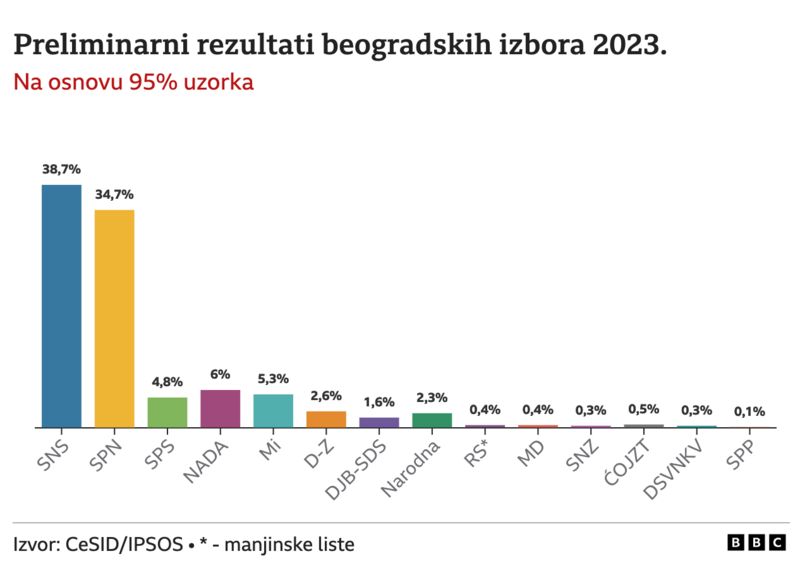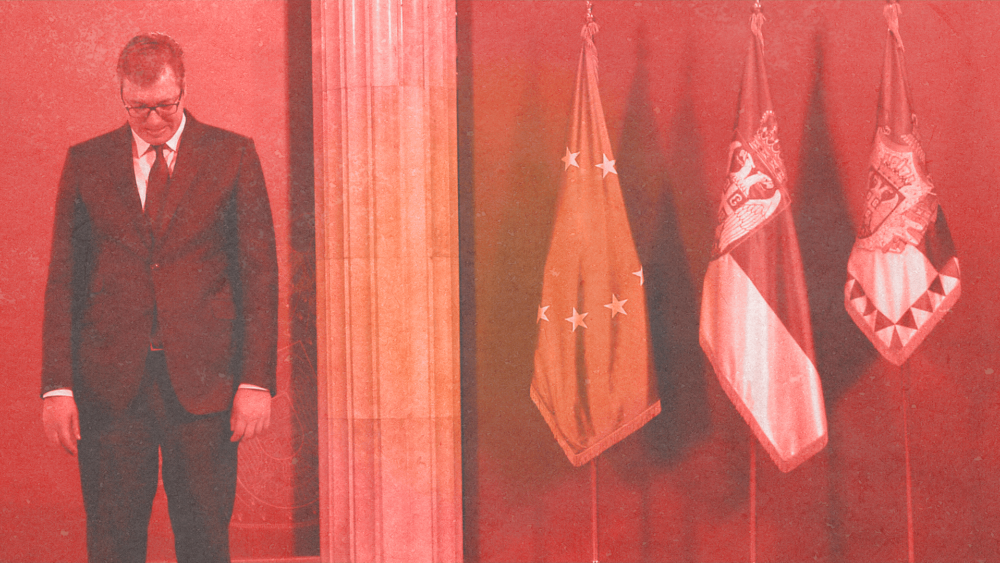Aleksandar Vučić’s SNS party claimed an easy victory in Sunday’s parliamentary elections against a lacklustre opposition, proving once again the illusion of choice that exists in Serbian politics
As Aleksandar Vučić cruised to another victory in Sunday’s Serbian parliamentary elections, there is a familiar feeling among the general public who, despite having various parties on offer, do not have one that inspires the masses and are left to pick the lesser of the evils on offer.
Since the change of regime in 2000, Serbia has entered a new era of parliamentary elections and parties domineering the political scene. It was the Democratic Party (DS) that was the leading force of the opposition against Slobodan Milošević’s regime and the biggest and strongest party structure that developed.
But even though, in recent times, the DS has betrayed its voters in one way or another, it remains a strong force with a steady percentage of the voters. On the opposite side, we have the ruling Progressive Party (SNS) and Aleksandar Vučić, who has been in power since 2012. The success SNS had back then is mostly a consequence of disappointed DS voters who either decided not to vote at those elections or to switch to other parties which resonated more with their individual political priorities.
After removing Milosevic, we believed that we could change the government if it was not working well, at the next (democratic) elections. Time will tell how naïve we were.
But history is repeating itself as we are again at the point where, after months of protests, which started in May after the primary school shooting in Belgrade as an organic reaction from the people, we seem to be back to square one. The protests continued throughout the following months, but were ‘coordinated’ by the opposition parties, which slowly but surely lead to the forming of an alliance. What the alliance was supposed to be was a strong block, and the main moto was that we must ‘unite the opposition’ into one front, regardless of any ideological and political differences, to beat Vučić.
We assumed that, once we beat Vučić, we would have new, democratic elections again. And so, a counter front formed in the shape of Serbia Against Violence (SPN), made up of several parties. Voting for SPN involved swallowing a bitter pill for some people, as part of that coalition were parties that had already disappointed and betrayed voter trust. That front is likely to have lost some votes due to nausea being too strong to be able to vote for the lesser evil again.

On the other hand, the plan of having one united front go up against SNS fell apart before the electoral lists were even formed. So, the pre-electoral calculations started based on who would go above the threshold, whose votes were going to SNS if they stayed below the threshold, who was going to ‘take’ Belgrade, as the main battlefield for the changes of the regime.
In parallel, the idea of only two fronts didn’t really hold the water anymore, but the SPN coalition went ahead. Another possible factor behind the results we saw is that people also felt that some of the core issues of Serbian elections were not even addressed, let alone solved.
A rigged system
The voting system is so rigged, from the number of citizens with residence and voting rights in Serbia, to dual citizenships and ‘imported voters’, that we can’t even know if the results are correct. And, even if the voting lists were spotless, irregularities at the voting centres are more blatant each time. However, although social media is flooded with videos and testimonies of irregularities, the foreign observers, the EU representatives and, last but not least, the US embassy, are not saying a word about it. They will publicly ‘raise a concern’ as usual, but their silence is loud support for Vučić – just as it has been for the last eleven years of his rule. As long as he serves a purpose, no staged elections will bring him down, nor will the casting for the new actors, until the United States and the European Union say it’s done.
The messy political scene reached its peak on Sunday where some people were waiting for hours in lines to vote, while others suffered intimidations and physical attacks. However, the SPN was unusually silent about it. Even before we had first estimations from their headquarters, which came later than ever, and after Vučić declared the victory, there was no mention of foul play. The results were unsurprising, unfortunately: there is still an overwhelming percentage of people, around 40 percent, who choose not to vote – much like in other European countries. Vučić won, the SPN coalition gained a fair number of MPs, both in Belgrade and in the Republic, and a small legion of parties stayed under the threshold, some of them deservedly so.
The minimal change across the different players is meaningless in the bigger picture. Of course, a simplification for the sake of understanding the ‘who is who’ on Serbian political scene, we can divide all the parties in two main camps: pro-NATO, pro-EU, some green policies and overall neoliberal vs. anti-EU, pro-Russia, a pinch of social policies and overall neoliberal economy-wise.
Ultimately, there is truly no alternative when your choice revolves around picking the lesser of two evils of which we have already tried one before, or the evil that we currently have. Not much of a choice.
Until we have a party with a political programme which doesn’t enable the further colonialisation of Serbia and its resources, until there is a comprehensive economical plan, we will continue voting against instead of for, or choose to go numb and not vote at all.
Do you want to be informed of DiEM25's actions? Sign up here















